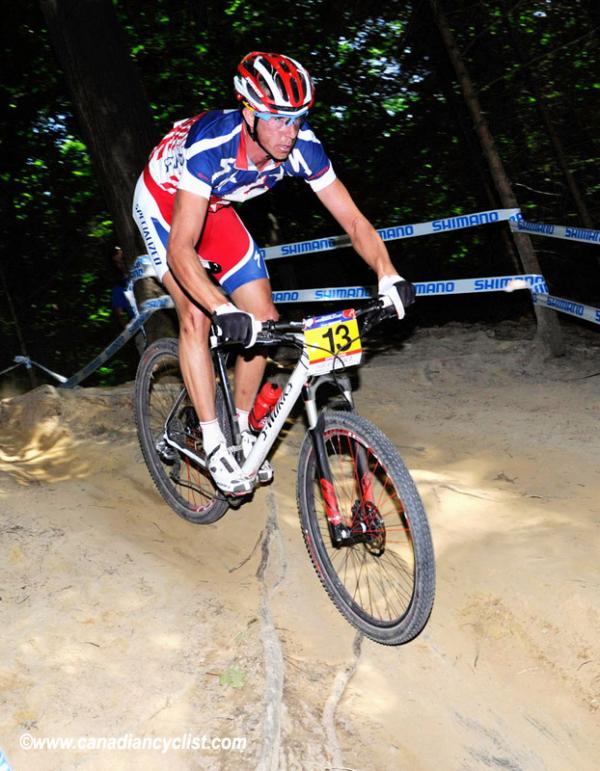Video: Wells World Cup and American MTB racing differences
European World Cups more like road racing, crits and cyclo-cross

Todd Wells (Specialized Racing) finished 33rd as the top American at the UCI World Cup in Offenburg, Germany, on Sunday. Wells often finishes higher in World Cups, but he wasn't the only American struggling on the day. Samuel Schultz (Subaru - Trek) was 45th; Adam Craig (Rabobank - Giant Off-Road Team) was 62nd and Jeremy Horgan-Kobelski (Subaru - Trek) was 67th.
"It was a brutal race out there. The Offenburg course is fast, and if you blow up on a fast course like that, there are always guys every couple of seconds who are ready to come by you," said Wells. "I went from having a good race to just trying to hang on and get it over with.
"I made it into the lead chase group, and I was able to stay in there for the first three to four laps. I was feeling pretty good. At the end of the fourth lap, it started to go pretty badly, and in the last two laps, I had nothing."
At the Dalby World Cup, one week before Offenburg, Wells was 16th, Horgan-Kobelski was 34th, Jeremiah Bishop (Cannondale) was 39th and Schultz was 53rd.
Wells couldn't speak for the other Americans and why they are struggling at the World Cups, but he did offer some observations on how the racing has been changing in the past year or two.
"I feel like the level has come up. There are probably six guys inside of every minute. The one thing with the World Cup is that it's become such a fast type of race. The speeds are going up, the climbs are getting shorter and it's a much more explosive type of race.
"The climbs are only one to two minutes long. It's almost like a road race or a criterium where you sprint out of every corner and you hang on as long as you can. We used to have long downhills where you could fully recover. Now they are 20-30 seconds long and you go from that into a flat out sprint. There is more drafting."
The latest race content, interviews, features, reviews and expert buying guides, direct to your inbox!
Wells noted that mountain bike racing in the United States is nothing like World Cup racing in the rest of the World. It may be that difference that is hurting the Americans' chances.
"Sea Otter is a short course. It has some explosive climbs and you can sit on and it's very smooth, but I don't see any course in the US that is like a World Cup course.
"We are getting shorter courses, and with shorter courses come shorter climbs, but the US is the home of mountain biking. We invented it - we used to have long climbs and long descents - often at ski areas and that's what people train for. That's totally different than what it is becoming on the World Cup and Olympic circuit."
Wells, who is both the US cross country and cyclo-cross national champion may be doing as well as he is on the World Cup circuit because of his expertise in cyclo-cross.
"I feel like road races and circuit races and criteriums are more like European World Cup mountain bike races than any US mountain bike races," said Wells.
"The closest thing we have other than those road events is cyclo-cross. It's not only climbing, but there are high speed and short recovery sections in cyclo-cross races."
While the Americans are presently struggling to break the top 20 in the World Cups, success tends to come and go, and the month-long break between cross country World Cups may be just what the Americans need to focus on their intensity training.
"For me, I've focused on the World Cup for the past few years, and sometimes it works, but sometimes it doesn't."
The World Cup action will resume in North American with the next rounds in Mont-Sainte-Anne, Quebec, Canada, and Windham, New York, United States in early July.
Sue George is an editor at Cyclingnews. She coordinates all of the site's mountain bike race coverage and assists with the road, 'cross and track coverage.